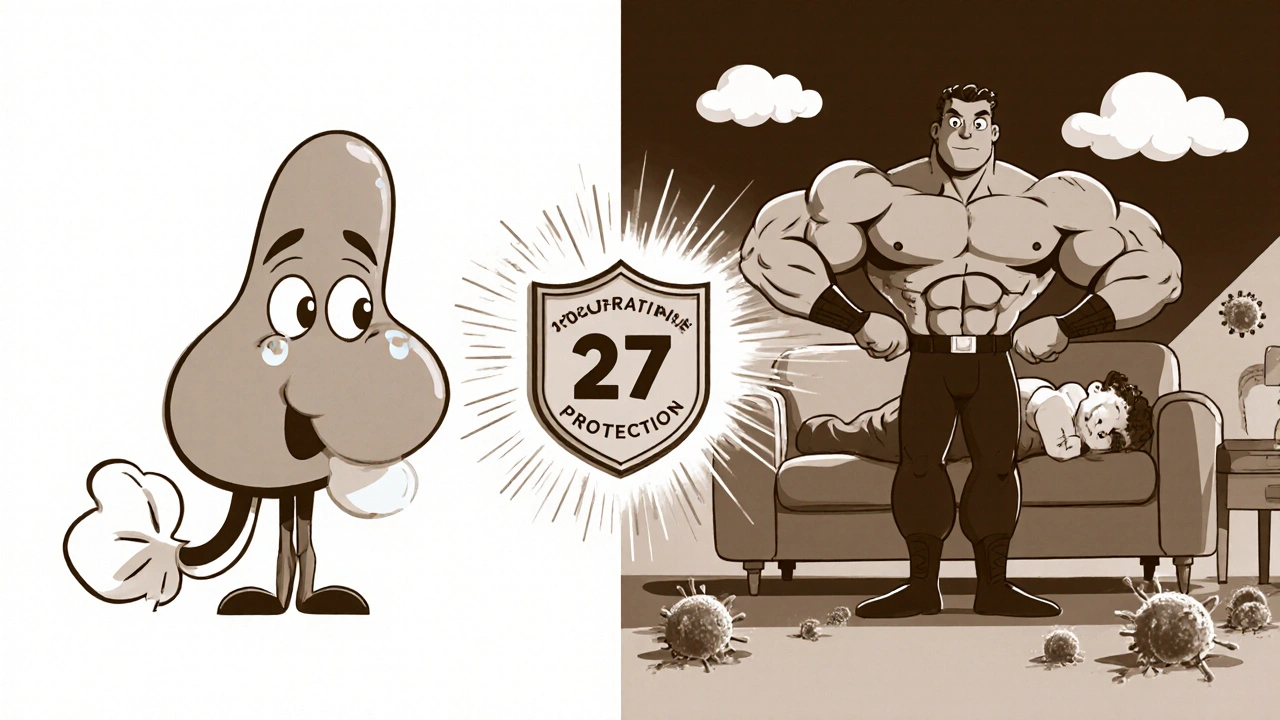Loratadine: What It Is, How It Works, and What Alternatives Work Best
When you’re sneezing, itching, or fighting runny eyes from seasonal allergies, loratadine, a non-drowsy antihistamine commonly sold under the brand name Claritin. Also known as Claritin, it works by blocking histamine—the chemical your body releases during an allergic reaction. Unlike older antihistamines like diphenhydramine, loratadine doesn’t usually make you sleepy, which is why so many people reach for it daily during pollen season.
It’s not just for hay fever. Loratadine helps with allergic skin reactions, hives, and even some types of chronic itching. It’s taken once a day, starts working within an hour, and lasts 24 hours. But it doesn’t fix everything. If your nose is stuffed up, you might need a decongestant like pseudoephedrine. If your eyes are burning, you might need eye drops. And if loratadine doesn’t help after a few days, you’re not alone—some people respond better to cetirizine or fexofenadine. These are all second-generation antihistamines, but they work slightly differently in the body.
People often ask if generic loratadine is the same as Claritin. Yes, it is. The active ingredient is identical. The only difference is the filler ingredients, which rarely affect how well it works. That’s why most folks choose the cheaper version. But if you’re sensitive to certain dyes or preservatives, you might notice a difference. Always check the label. Also, if you have liver problems, talk to your doctor before taking loratadine. Your body needs to process it through the liver, and that can slow things down.
What you won’t find in most drugstore ads is that loratadine doesn’t work for everyone. Some people still feel tired. Others get headaches or dry mouth. A few report stomach upset. If you’ve tried it and it didn’t help, it’s not you—it’s just that your body reacts differently to histamine blockers. That’s why alternatives matter. Cetirizine works faster for some. Fexofenadine is gentler on the stomach. And for severe cases, nasal sprays or immunotherapy might be better long-term solutions.
The posts below cover real experiences and comparisons. You’ll find how loratadine stacks up against other allergy meds, what people actually feel when they take it, and when to switch. Some articles dig into side effects you won’t hear from the pharmacist. Others compare prices, dosing, and what works best for kids or older adults. Whether you’re new to antihistamines or you’ve been using loratadine for years, there’s something here that’ll help you make a smarter choice.
Desloratadine vs Loratadine: Which Antihistamine Is Better for Allergy Relief?
Compare desloratadine and loratadine for allergy relief-dosing, side effects, effectiveness, and which one is better for adults and kids. Find out which antihistamine suits your needs.






